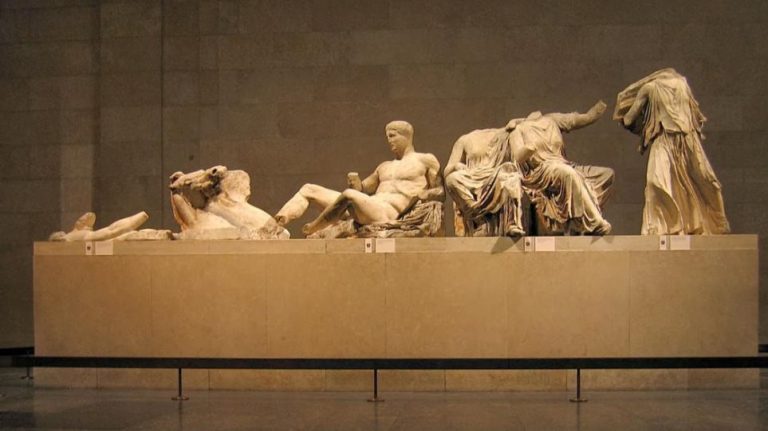The New Acropolis Museum was purpose-built to host the one thing every Greek government will always agree on: the Parthenon marbles being returned from London.
On Saturday, as the four-storey edifice marked its 11th anniversary, Athens reinvigorated the cultural row calling the British Museum’s retention of the antiquities illegal and “contrary to any moral principle”.
“Since September 2003 when construction work for the Acropolis Museum began, Greece has systematically demanded the return of the sculptures on display in the British Museum because they are the product of theft,” the country’s culture minister Lina Mendoni told the Greek newspaper Ta Nea.
“The current Greek government – like any Greek government – is not going to stop claiming the stolen sculptures which the British Museum, contrary to any moral principle, continues to hold illegally”.
For years, she said, the museum had argued that Athens had nowhere decent enough to display Phidias’ masterpieces, insisting that its stance was “in stark contrast” to the view of the UK public. In repeated polls, Britons have voiced support for the repatriation of the carvings, controversially removed from the Parthenon in 1802 at the behest of Lord Elgin, London’s ambassador to the Sublime Porte.
“It is sad that one of the world’s largest and most important museums is still governed by outdated, colonialist views”.
White slaves and black masters in TV program called “CRACKA” (video)
Greece’s center-right administration has vowed to step up the campaign to win back artworks that adorned the frieze of the Periclean showpiece ahead of the country’s bicentennial independence celebrations next year.
Within weeks of his election, Kyriakos Mitsotakis, Greece’s prime minister, told the Observer Athens was prepared to allow treasures that had never traveled abroad to be exhibited in London in exchange for the marbles being reunited with “a monument of global cultural heritage”.
Well-placed government officials have not excluded the EU pressing for the return of the antiquities as part of an overarching Brexit deal.
The row was injected with renewed rancour when the British Museum’s director, Hartwig Fischer, described their removal from Greece as “a creative act”. Half of the 160-metre frieze is in London, with 50 meters in Athens and other pieces displayed in a total of eight other museums across Europe.
Read more: The Guardian
Ask me anything
Explore related questions





